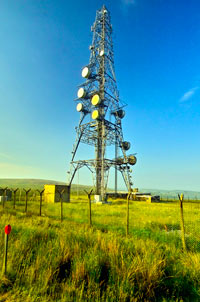Mobile mast network consolidation: Bad new for farmers?

Solicitor Ruth Morris from law firm Withers LLP outlines some of the changes taking place to the telecomms network.
If you have a mobile phone mast on your land, you may be aware of recent changes in how telecoms operators use and share masts.
Network consolidation has arrived, where operators join forces in an attempt to cut their running costs. T-Mobile and Hutchison 3G have already undertaken a programme of network consolidation and it is believed that Orange and Vodafone have plans to consolidate their networks too.
It has always been possible for more than one operator to use a mast. But advances in technology mean that instead of having to fit large amounts of additional equipment, operators can now share a mast after making only minor adjustments to the equipment on site.
This opens the door to the possible decommissioning of sites where an area is supplied by masts for two consolidating operators. As part of this process, telecoms operators have been writing to landlords, requesting they agree to re-assigning their leases from one operator tenant to two.
Although two tenants will then be occupying the site, the lack of new equipment means that the site sharing provisions found in most leases will not bite.
This is significant. Under the terms of many telecoms leases, site sharing allows the landlord to claim a percentage share of any site share rent paid to the operator. Re-assignment does not confer any such financial advantage.
A network consolidation assignment therefore provides no increase in rent. It is also likely that because there is no additional equipment to speak of, the presence of an extra operator on the site will also not be a reason for a rent uplift at a future review.
During the early stages of the network consolidation process, some landlords managed to successfully re-negotiate the terms of their leases. The operator was to pay them a lump sum on assignment and cover their legal and surveyor’s costs.
Recently the operators have become more certain of their legal position and their willingness to negotiate has faded. Landowners are faced with a stark choice: Agree to the assignment, or face the potential loss of income if their mast is decommissioned in favour of a neighbouring site.
LEASES
Despite this gloomy outlook, if you receive a letter from an operator asking for consent to assignment, it is worth consulting your solicitor or agent before signing up. Although with many leases it is not possible to prevent assignment, there are other leases where assignment is absolutely prohibited.
Consent can still be given, but the landlord is not obliged to consent to the assignment. This can be helpful in negotiating an assignment premium or increase in rent, if the mast is in a good geographical position and there are no other masts in the vicinity that the operators could use instead.
Where there is no prohibition on assignment, it is not possible to withhold or delay consent on the basis that you require an increase in rent because of the assignment.
Although it is very unlikely that a network consolidation will fall under the site sharing provision of the lease, and so there will be no entitlement to a rent uplift, it may still be worth considering working with a national agent handling with a number of such applications on a block basis to try and achieve a better financial result.
*Ruth Morris is a solicitor at international law firm Withers LLP

